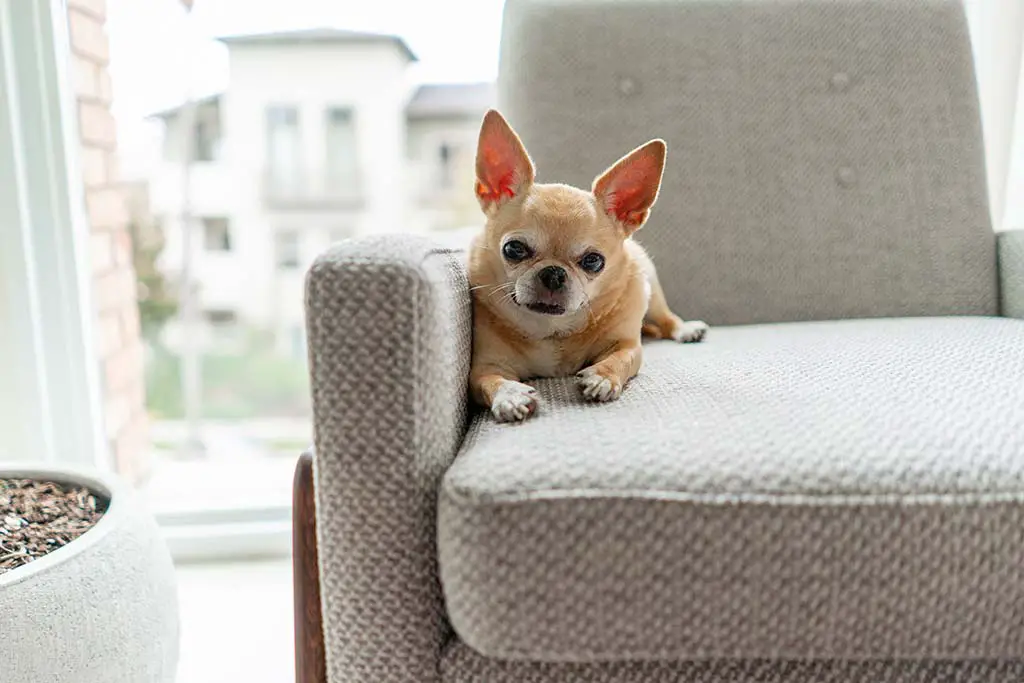At first glance, an apartment seems like an inappropriate environment for a pup. This doesn’t mean you’ll have to live without the warm presence of the furry friend. Instead, you can take some steps to raise a puppy in an apartment. The main limitations of raising a puppy in an apartment are the limited space and the noise levels. Fortunately, preparing your pup and your apartment in advance will help you avoid these issues! That’s not all, though! Keep reading this guide to learn what to expect when raising a pup in your apartment and how to get through the process. Let’s dive in!
Article contents
How to Raise a Puppy In an Apartment
Here are a few steps to raising a puppy in an apartment:
1. Preparing Your Apartment for a Puppy
Raising a puppy in your apartment starts before you actually adopt the canine. If you already have a tiny friend, the move will make it anxious. So, you must ensure the environment is as comfortable as possible. First, you must ensure your living conditions are appropriate for a pet. Not only will this make raising the pup much easier, but it’ll also prevent many accidents that can be tough on the tiny animal.
Accordingly, you’ll need to make these changes to your apartment:
- Start by removing any valuable and breakable items.
- Cover electric sockets and remove any cords that the puppy might chew on.
- Clear away any toxic food and items from your dog.
- Keep medications out of reach.
- Create boundaries for the pup, introducing it to other parts of your apartment little by little.
- Get your puppy plenty of toys, a bed, and other essentials to help it get comfortable quickly.
2. Crate Training
Crate training isn’t just to keep your pups locked instead of running around your home at night. Your apartment might be small, but it’s still crucial to crate-train your puppy. Keeping a dog in tight quarters can quickly turn messy. Well, crate training will make your life much easier. First, it teaches your tiny friend to hold their bladder in your apartment. Additionally, your puppy will have a little space for eating and sleeping. Once your furry friend is trained, they’ll think of their crate as a haven. In turn, this will put a stop to any loud behavior that could annoy your neighbors. It’ll also help soothe them in case you have guests over, as your pup will have a safe hiding place.
3. Keeping Your Pup Active
All dogs need regular exercise. However, the amount of exercise depends on the breed. Pups, in particular, have a lot of playful energy. If you don’t want your new friend to wreak havoc on your apartment, you must take it for plenty of walks. Tiring your dog out during the walk will keep it pretty calm at home. Moreover, the walk is a chance for your little friend to socialize as well as respond better to behavioral training. That’s not all. Since you live in an apartment, you must take your dog to a park so it can do its business. Otherwise, you’ll have a rather smelly situation, even if you make sure to clean after your pup.
4. Stopping Your Puppy From Barking
The main issue dog owners who live in apartments have is excessive barking. Naturally, an uncontrollable pup is incredibly annoying. So, you’ll find the nose complaints rolling in. Furthermore, a small dog is prone to anxiety. With people going up and down your apartment building’s hallway, the puppy’s nerves won’t handle it. For this reason, it’s crucial to limit your furry friend’s outbursts while keeping it comfortable and calm. You can start by using positive reinforcement and ignoring your pup when it barks for attention. The puppy can also benefit from anti-stress devices.
5. Hire a dog trainer
Let’s face it, training a small puppy is easier said than done. If you want your dog to be comfortable in the small living area and the neighbors to remain happy with your dog’s presence in the building, a trainer is the way to go. Even a couple of sessions with a dog trainer can be significantly beneficial. This will help control any problems before they become permanent behavioral patterns. Additionally, trainers can provide tips that are specific to your living conditions and the pup’s breed.

What to consider before raising a puppy in an apartment
Raising a puppy in an apartment requires many steps. That said, if you choose the right pup based on your lifestyle, things will be much easier. So, you should take the following into account before adopting your new pet:
Breed
Unfortunately, not all dog breeds can live in an apartment. This doesn’t only depend on the dog’s size. Some larger dogs, such as greyhounds, have low energy levels. On the other hand, smaller dogs, like border collies, need all the space they can get. Accordingly, doing your research to find the best dog breeds for apartments is crucial. If you’re still not sure, it’s best to consult the adoption center and the vet.
The pup’s age
Puppies require a lot of love and attention compared to older dogs. In fact, puppies younger than three months can’t be left alone for over four hours. So, you must substantially alter your schedule during the first couple of months of the pup’s arrival. If you’re unable to make enough time for your tiny friend, consider getting an older dog.
Lifestyle
A puppy can take up all your time and energy. If you’re not prepared, you’ll have a difficult time training your pet. That’s because living in an apartment means that your pup would need more outdoor time. This would be the perfect opportunity for you to get active and start your healthy lifestyle!
Apartment rules
Checking your apartment building’s regulations and your lease should be the first thing to do before considering a puppy. However, that’s not enough. You should also give your neighbors a heads-up. Some people can be allergic to dogs or particularly dislike noise. In this case, you’d have to quickly train your pup and avoid having them in shared areas of the building.
Final thoughts
Many first-time dog owners find raising a puppy in an apartment tricky. Yet, it all comes down to the breed of the puppy and how well-trained it is. While puppies are generally more energetic than adult dogs, some breeds are less energetic than others, making them more comfortable in small areas. As for training, you need to give your pet plenty of outdoor time. You must also keep it comfortable and calm to avoid destructive and loud behavior. Then, you’ll have a happy furry friend for a roommate!
